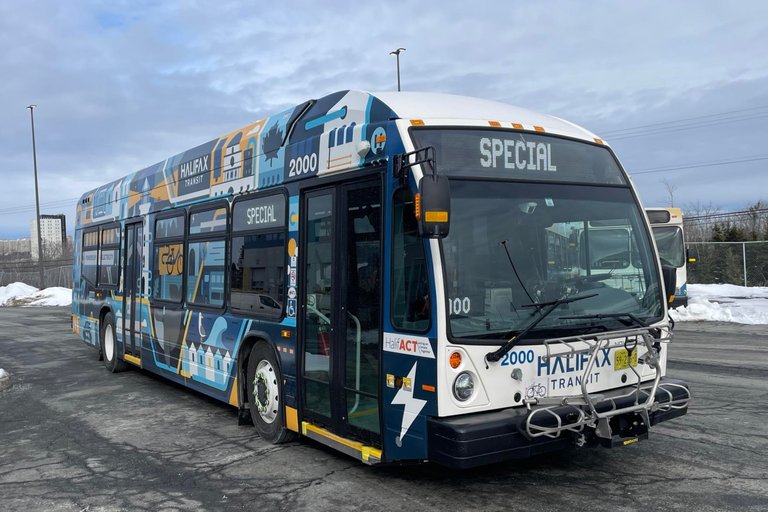Nova Scotia News
Halifax Rolls Out New E-Bus Fleet to Modernize Transit
Halifax launches a new electric bus fleet this week, aiming to reduce emissions and modernize the city's public transport system.
Published on May 11, 2025 at 08:16
By By Saltwire Echo Editorial Team

Halifax has taken a major step forward in public transportation modernization with the launch of a new fleet of electric buses. The initiative, years in the making, is part of a broader commitment to environmental sustainability and urban transit innovation. Unveiled at the Ragged Lake Transit Centre, the buses represent the first wave in what officials promise will be a zero-emission future for the city’s transit system.
The new electric buses are expected to significantly cut down on greenhouse gas emissions. According to Halifax Regional Municipality (HRM), one electric bus can reduce carbon emissions by nearly 50 tonnes annually. The city plans to gradually replace its aging diesel fleet with these environmentally friendly alternatives over the next decade.
Funded through a combination of municipal investment and federal grants, the $112 million program also includes infrastructure upgrades such as charging stations and facility enhancements. The Ragged Lake Transit Centre was retrofitted with state-of-the-art electrical systems to support round-the-clock charging for the fleet.
Transit riders will benefit not only from the environmental improvements but also from quieter, smoother rides. The new buses feature improved suspension, noise insulation, and accessibility enhancements. Early reviews from passengers have been overwhelmingly positive, with many praising the modern interiors and digital fare displays.
Drivers and maintenance crews have undergone specialized training to operate and service the electric buses. “It’s a new chapter for us,” said Rebecca Sloan, a transit supervisor. “We’re adapting to new technology while continuing to prioritize safety and reliability for Halifax residents.”
Public reception has been enthusiastic. The inaugural route, which runs between Mumford Terminal and Clayton Park, has seen a slight uptick in ridership since the electric buses were introduced. City officials hope this trend continues as more routes transition to electric.
The shift aligns with Nova Scotia’s broader environmental goals. The province aims to reach net-zero carbon emissions by 2050, and modernizing transportation is a key component of that strategy. By investing in clean transit solutions, Halifax is setting a precedent for other municipalities in the region.
Local environmental groups have also voiced support. Ecology Action Centre, a prominent nonprofit in the region, called the move “a bold and necessary pivot toward sustainable urban living.” They encouraged the city to ensure transit expansion reaches underserved neighborhoods.
In addition to immediate benefits, the city anticipates long-term cost savings. While electric buses come with a higher upfront cost, their lower fuel and maintenance expenses are expected to save the city millions over the fleet’s lifetime.
The HRM has also committed to transparency and public engagement. Future expansions will be informed by rider feedback and community input. Monthly progress updates will be shared on the city’s official website and social media platforms.
As climate change continues to pose challenges to coastal communities like Halifax, forward-thinking initiatives such as this electric fleet could serve as a model for other towns and cities in Atlantic Canada. The project illustrates how local governments can be agents of impactful environmental change.
The next batch of electric buses is set to arrive in early 2025, with plans already underway to expand routes in Dartmouth and Bedford. The city’s leaders remain optimistic that Halifax will become a leader in clean transit, not just regionally, but nationally.